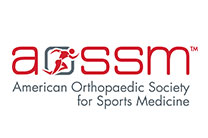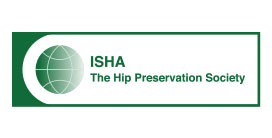-

Torn Hip labrum is when internal changes to the tissues, muscles, and bones create problems cause the tissue that cushions the socket to get damaged.
Know More -

Avascular necrosis of the hip (AVN), also called osteonecrosis of the hip, occurs when the blood supply to a section of a hip bone is diminished or stopped.
Know More -

Chondral lesions of the hip are a specific type of damage to the hip articular cartilage which can include small fractures of the cartilage and bone layers, blistering of the cartilage, and cyst like lesions of the bone, under the cartilage.
Know More Launch Movie -

The gluteus medius is a muscle on the outside of the hip. It helps us stand upright and walk properly. A tear in this muscle is often called the “rotator cuff tear of the hip.” Gluteus medius tears cause pain, weakness and limping.
Know More Launch Movie -

Adult Hip Dysplasia means that the hip socket is unusually shallow, the femur is not formed correctly, or the joint’s structure is not correct in some other way. The malformation of the hip results in stress on the joint and more wear-and-tear than normal.
Know More -

Hip impingement is when part of the soft tissue around the hip socket gets pinched or compressed. For example, the soft tissue called the labrum can become frayed or torn. This can happen when there is abnormal contact between the ball and socket of the hip joint.
Know More -

Falls are a serious risk for any individual, though older consumers may face increased hazards and long-lasting impacts from a simple fall in the home. If you struggle with hip instability — often stemming from a previous injury — you are even more at risk, which warrants medical intervention.
Know More -

Sometimes the articular cartilage or parts of the bones in the hip detach or chip, usually because of an injury. The resulting small pieces can drift around the hip joint, causing pain, irritation and movement problems.
Know More -

A proximal hamstring injury is typically a chronic condition of the high hamstring tendon (proximal hamstring tendinopathy) which athletes sometimes experience pain when sitting, or deep pain in the buttocks or upper thigh.
Know More -

Snapping hip syndrome is the term for the condition in which you feel or hear a snapping when you move, walk, run or go about daily activities. It is usually more of an annoyance than a problem, although many afflicted report discomfort and weakness that can disrupt daily life.
Know More -

Hip stress fractures are small cracks in the bone, usually occurring in the upper part of the thigh bone. Most fractures are caused by strenuous repetitive activities, such as distance running.
Know More -

The trochanteric bursa is a small, fluid-filled sac located around the hip and acts as a pad over a bony spot called the greater trochanter at the side of the hip.
Know More











